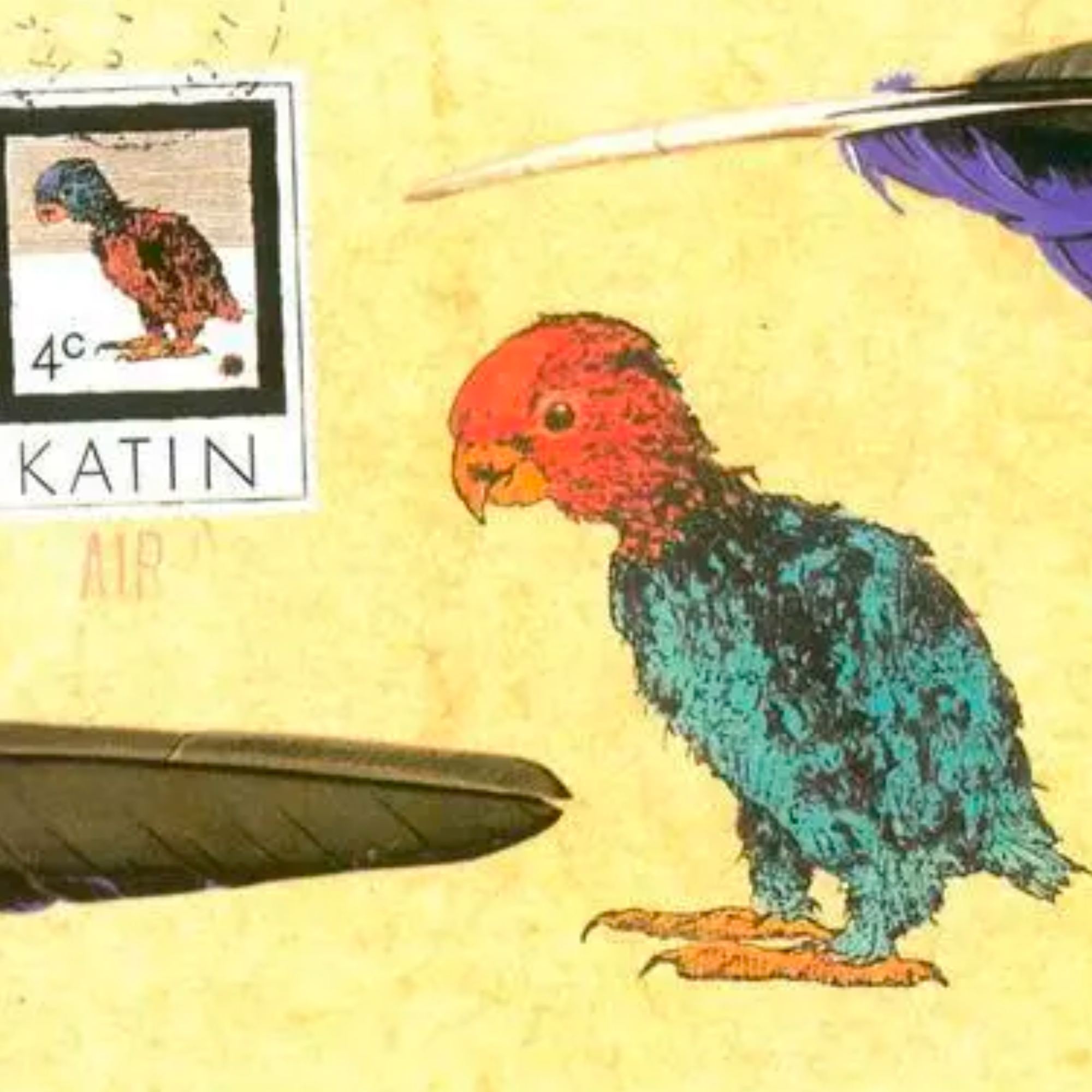
Photo Credit: Maria Baranova, courtesy of Annie Dorsen
Lily Goldberg talks to the playwright bringing artificial intelligence to the stage.
Annie Dorsen is a theater director working at the intersection of algorithmic art and live performance. Earlier this month, her newest show, Prometheus Firebringer, concluded a two-week run at Brooklyn’s Theatre for a New Audience. In the hybrid performance, Dorsen recited a lecture on artificial intelligence assembled from texts by various authors, while on the other side of the stage, AI-generated Greek masks recited a GPT-3-produced tragedy.
This isn’t Dorsen’s first rodeo with AI. In fact, Dorsen has been experimenting with natural language processing in theatrical settings way before high schoolers started using ChatGPT to write their term papers. In Hello, hi there (2010), Dorsen made two chatbots perform an improvised dialogue inspired by the famous television debate between Michel Foucault and Noam Chomsky. In A Piece of Work (2013), a computer program scrambles Hamlet while an actor performs the output.
However, Prometheus Firebringer was Dorsen’s first piece to engage specifically with generative AI; I spoke with Dorsen about the show and its unique place within her body of work.
Lily Goldberg: For people who are unfamiliar with your work, can you give a brief overview of what you're energized by nowadays, and what you've been working on with this show?
Annie Dorsen: Back in 2009, I started working with very rudimentary AI. That started my interest in computer generated language and whether the theater could be an interesting place to explore the cultural resonance of computer generated text. I did a series of works through the 2010s that were all using pretty simple algorithmic structures—I was thinking a lot about transformation and the relationship between inputs and outputs, and thinking about how human cognition deals with text that has no human author. In 2012, I went to an AI conference in Toronto, where [philosopher and computer scientist] Judea Pearl gave a talk about the “statistical turn” in AI. I thought, eventually I'm going to have to deal with this.
LG: What kind of response have you gotten from people in your community about linking theater and AI?
AD: With Hello, Hi there, I got a lot of puzzled responses. There was one talkback where somebody stood up and said, "Why are you doing this? Theater is about the human!" I think she was very upset at the idea that I would make a theater piece where you're just watching a computer run through a program. That's a part of the theater culture for sure—that it is essentially understood as a humanist endeavor. Though there's been an enormous amount of writing going back to the 1950s about what computer generated language means philosophically and epistemologically, that discourse was not really current for most audience members.
The pieces have gotten more relevant for audiences as the years pass. Once the new class of models was released and exploded in popularity, I had a lot of people saying "Oh, the culture has caught up with what you've been trying to talk about for fifteen years!"
LG: In Prometheus Firebringer, you called AI a "predicting machine.” What’s the role of prediction in mythology and in your work?
AD: In Prometheus Bound [the text on which Prometheus Firebringer is based], prediction is the driver of the whole business. Prometheus has been punished for the theft of fire, but his get out of jail card would be to tell Zeus what Zeus wants to know, which is that in the future, some descendant of Zeus is going to overthrow him. Also, obviously, prediction is at the heart of computational thinking—statistics are nothing more than a way to predict, I suppose. That's about political and economic control.
When we organize an entire kind of epistemological universe around the idea of prediction based on prior patterns, we're doing something very weird, you know? Shoshana Zuboff writes about this pretty directly—you're deciding that the future is going to be like the past. That you can control for anomalies. That's a pretty brutal form of social control when you put it in those terms.
 | Oct 16, 2023 Griffin Moss is missing. |
 | Oct 9, 2023 Shouting into the void that answers back. |
|
|  | Apr 16, 2023 |
|
|  | Oct 5, 2023 |
|
|  | Jun 5, 2023 |
|
|  | Mar 2, 2023 |
|
|  | Aug 3, 2023 |
|
|  | Aug 25, 2023 |
|











